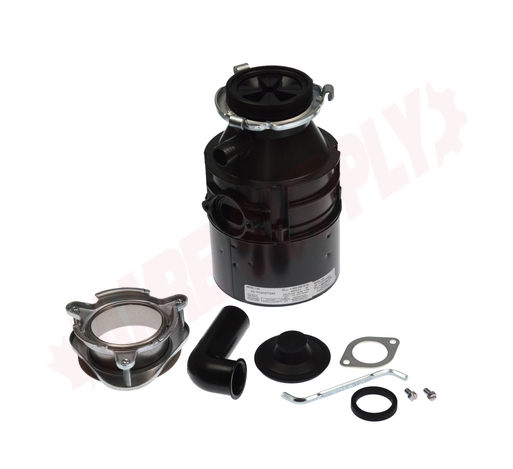

Safety is essential, so never work on a disposal while it's still connected to power. Step 1: Shut Off the Power Switch & Unplug the Disposal These should go into your trash can - adding them to your disposal will quickly jam it up, resulting in a clog. You also need to know that your garbage disposal should never be used for inorganic waste such as tin foil, paper, plastic, etc.

While they may seem innocuous, they quickly solidify, turning into a tough, waxy substance that inhibits waste flow.
FOG: Disposing of liquid fat, oil, and grease in the disposal drain causes clogs, too. Before grinding up your waste, ensure it doesn’t contain anything that isn't food. Foreign objects: Dropping foreign objects, such as silverware, into your drain can result in a clog. Food peels, in particular, form a thick paste that easily stops your drain. Grinding certain items: There are certain items, such as coffee grounds, eggshells, potato peels, and banana peels that are great at causing clogs. Over time, this buildup will prevent the flow of water, clogging your disposal drain. Lack of flushing water: Not using enough water when disposing of food waste will slowly lead to buildup. When this happens, the disposal drain is more likely to back up, leading to water leaks under your sink and foul smells in your home. Why Is My Garbage Disposal Not Draining?Ī garbage disposal clog could happen for one of several reasons - but in general, it occurs when objects bind the impeller blades or clog the drains of the appliance. You only need 30 minutes to learn this new skill, and the knowledge will be useful forever! Knowing the cause is essential to preventing frequent clogs - you don’t want to be unclogging your disposal more often than you absolutely need to. #How to replace garbage disposal badger 1 how to
Take the time to learn how to properly unclog a garbage disposal drain. Or, you could choose to keep that money by getting your hands dirty - but in the best possible way.






 0 kommentar(er)
0 kommentar(er)
